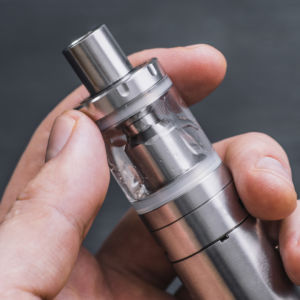The Family Smoking Prevention & Tobacco Control Act mandates that all new tobacco products must receive a premarket tobacco application authorization to be sold on the U.S. market. Any product without a PMTA approval cannot be legally sold in the United States and is considered “adulterated” or “illicit” under federal statute. Believe it or not, the FDA and economic advisers to President Barack Obama at the time feared that quickly implementing the new tobacco regulations would result in catastrophe for a blossoming vaping industry.
Despite his campaign against nicotine user rights, President Donald Trump did his best to extend the PMTA deadline as much as possible. According to the law, new tobacco products need to be authorized for virtually every other marketing component a product may undergo.
This includes adjustments in packaging, manufacturing processes, and product design. FDA is also granted the right to exercise enforcement discretion, which permitted the deferment of enforcement on premarket authorization requirements for products available on the market, as of Aug. 8, 2016. This systemic grandfathering date still offered no assurances, given that the ability to introduce new products and liquids would require costly PMTA approval.
Paul W. Grimm, a federal judge for the U.S. District Court for the District of Maryland, hit the vaping industry with a setback by ordering the FDA to move up the premarket tobacco application deadline date.
The FDA was ordered by Grimm to initiate regulation enforcement on May 12, 2020. Due to the global pandemic of the novel SARS-CoV-2 coronavirus and the COVID-19 disease, Grimm granted a temporary stay to move back the PMTA deadline to Sept. 9, 2020. Amid the litigation drama, the PMTA regulatory pathway was only designed for product manufacturers who can afford the time and financial costs to gain legal marketing authorization from the FDA.
“The costs associated with PMTA will force Jvapes’ five locations in Arizona, Colorado, and Oklahoma to close doors,” Amanda Wheeler told Inside Sources in an email, highlighting her extreme concern. Wheeler is the owner of JVapes in Prescott, Ariz., and is the vice president of the Rocky Mountain Smoke-Free Alliance. She explained that for each product that they produce in-house comes a stock-keeping unit (SKU) attached to UPCs to track sales and inventory.
One PMTA authorization ranges from $8.6 million to $11.1 million per SKU, or per product and product variations. Wheeler adds: “Let’s say I have 100 products and each of the flavors has five nicotine levels, which means five SKUs per flavor, legal and other fees will cost my stores over $5.5 billion. There’s not a small business owner in the United States who can afford $5.5 billion for SKU applications.”
PMTA regulations place 14,000 vapor small and medium-sized businesses across the United States in a situation where they must prove to the federal government that their products have a scientific benefit appropriate for protecting the public from smoking-related diseases and mortality.
Despite existing studies that quantify the associated risks of vaping products and liquids to that of combustible cigarettes, the law mandates that the FDA define the scientific characteristics for each product application submitted.
“PMTA will also force me to lay-off 31 of my employees,” Wheeler continued. “With the record unemployment rates due to COVID-19, now is not the time to remove even more jobs from the market.” However, the PMTA deadline’s impact on unemployment will place consumers in more harmful situations where they have to return to smoking cigarettes or use less effective vaping and oral tobacco products.
There is a litigation effort to delay the PMTA deadline by another 180 days, but this measure may see very little fruit. It’s crucial to point out, too, that the regulatory bias against independent vaping retailers is ostensibly the truth to many external parties.
That means things can only get better if stakeholders across each field implement a dramatic education campaign about the vaping industry’s actual reality. Thus, the PMTA deadline at the end of the day is a regulatory morass that can’t yet be changed.


